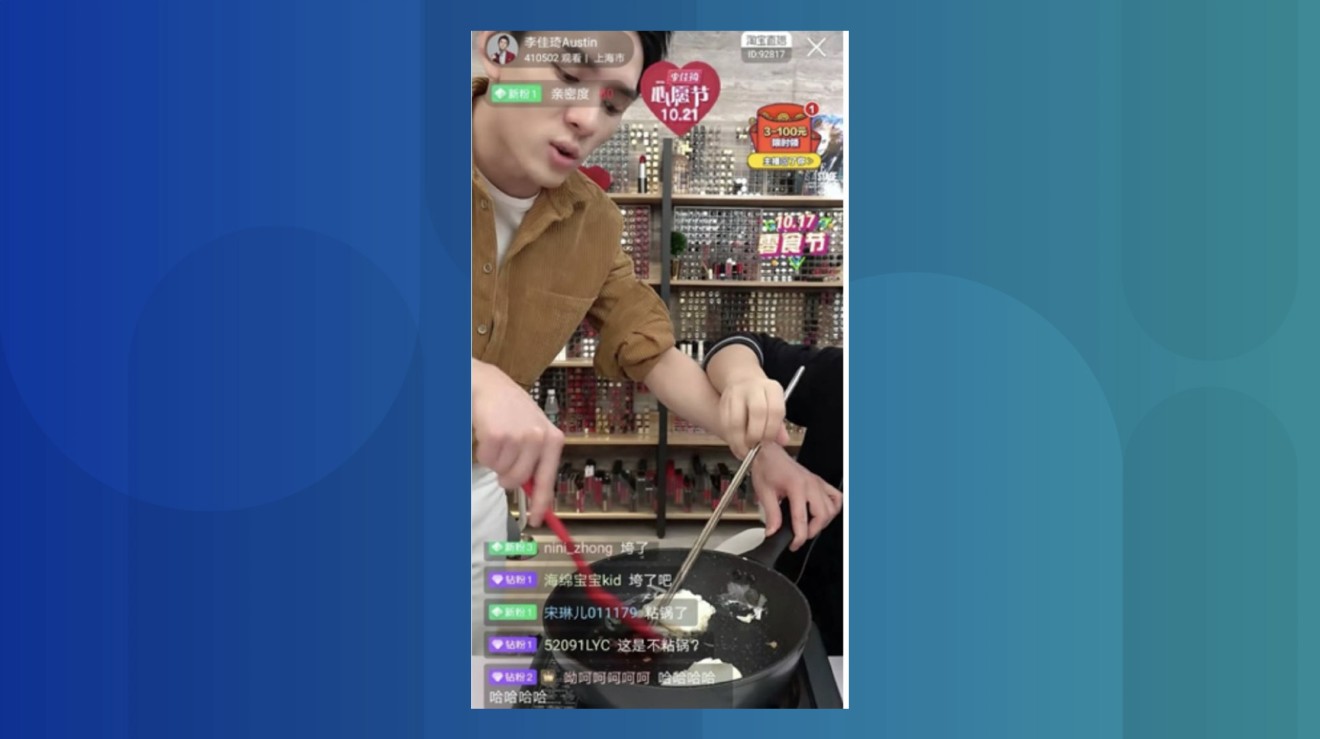Buyers like the experience of seeing the products in live-streamed video, but they also worry about false marketing and scams
Over the course of three days, 130,000 viewers tuned in to watch a live stream from Shanghai New World shopping mall. For 12 hours each day, from March 6 to 8, 12 different hosts hired by the mall hawked name-brand goods from the likes of Adidas, Dior and Lego.
Welcome to shopping in the age of the coronavirus pandemic. After physical retail locations were forced to stay closed for weeks, some merchants have turned to live streaming to remotely connect with buyers. Shanghai New World chose to stream on Douyin, the Chinese version of TikTok. Over those three days, the mall reportedly gained 10,000 followers.
But other tech companies offer similar services. A number of Chinese museums and the New York Metropolitan Museum recently started live streaming exhibits and selling gifts through Pinduoduo.

Live streaming ecommerce has been growing rapidly in China. The industry surpassed 433 billion yuan (U$61 billion) in transactions in 2019, according to a report from iiMedia. Now it's getting a boost from the coronavirus pandemic. The same report projects the industry will hit 916 billion yuan (US$129 billion) in 2020.
Part of the appeal of shopping through live streaming is that it can help compensate for shopping remotely in a way that browsing web pages doesn't. According to a survey from the China Consumer Association, people like this method of shopping because it's more social and interactive. They can also get a better understanding of a product.
As a result, China's biggest ecommerce and live streaming platforms have been pouring in to take advantage of the trend. And this year, they've been seeing some big gains.
Douyin saw live streaming consume 28.2% of its traffic in February, up from 24% in January, according to a report by QuestMobile. And on Bilibili, live streaming grew to 12.4% of traffic from 10.7%.
But the biggest live streaming shopping site is Alibaba's ecommerce platform Taobao. Out of 5,333 users surveyed by the Consumer Association, 70% said they use Taobao. Taobao said the number of merchants using live streaming for the first time surged 719% from January to February.
(Abacus is a unit of the South China Morning Post, which is owned by Alibaba.)
Douyin came in second with 57.8% saying they used it for shopping and then Kuaishou at 41%. Even platforms typically associated with video game live streaming offer a shopping function, with some people buying goods though Huya and Douyu.
But live streaming has also become the subject of scrutiny as a result of negative user experiences. The Consumer Association's survey shows nearly 40% of users have run into problems -- the biggest among them being exaggerated and false marketing.
One famous example involved Li Jiaqi, one of the country's most successful live streaming hosts, best known for selling a record 15,000 pieces of lipstick within five minutes. In November, Li tried to demonstrate a non-stick frying pan by cooking eggs with his assistant -- but the eggs wound up sticking to the pan. The incident drew wide ridicule on social media and criticism from state media.

Another worry among consumers shopping through live streaming is the possibility of fake goods, according to the survey. The association's report points out that many of the platforms hosting the streams don't process payments themselves, instead relying on third-party platforms. This could make them difficult for the streaming platforms to police in the event of a scam.
For more on China tech visit abacusnews.com or subscribe to our newsletter via abacusnews.com/newsletter for the latest China tech news, reviews and product launches.
Copyright (c) 2020. South China Morning Post Publishers Ltd. All rights reserved.







